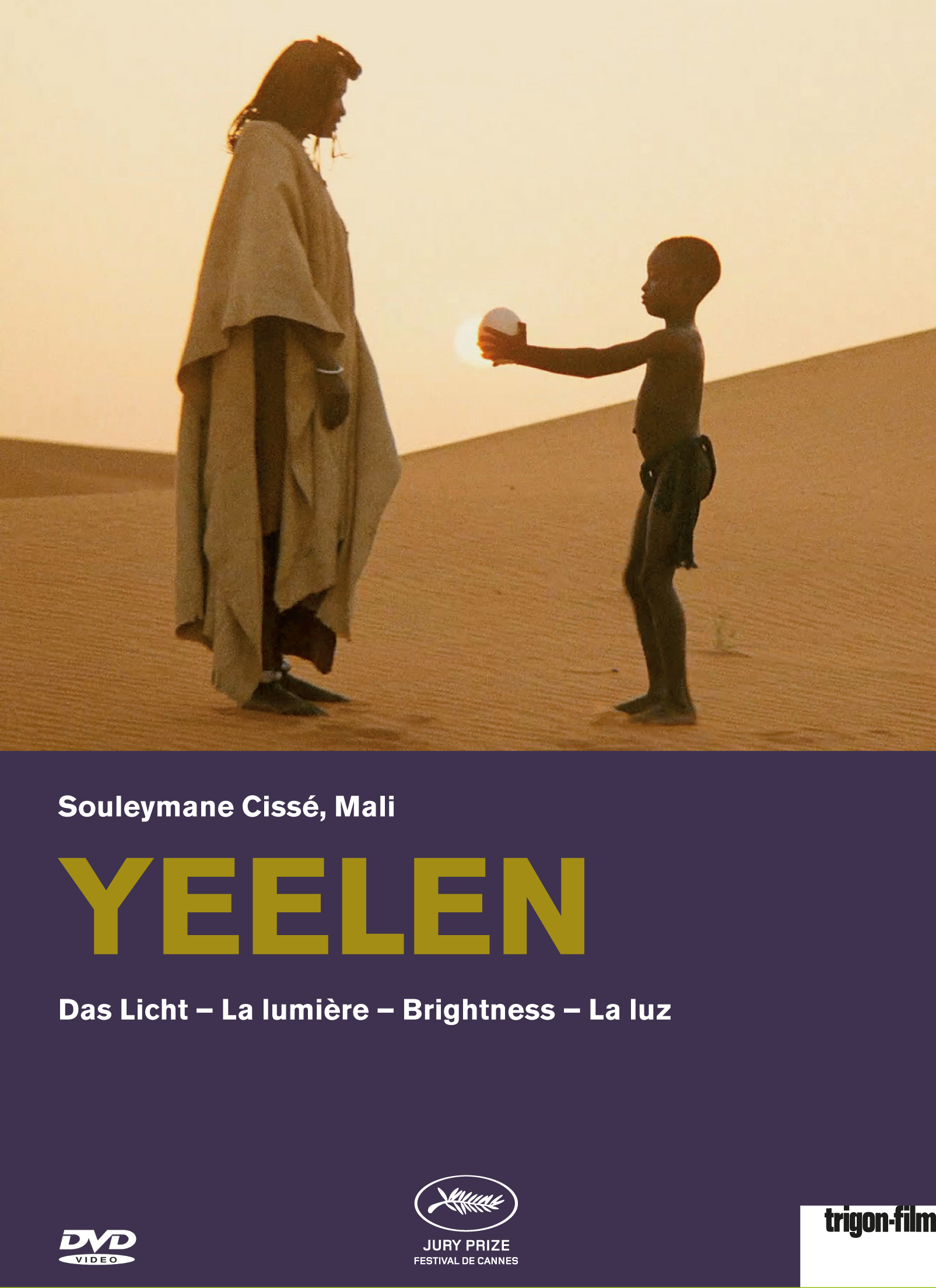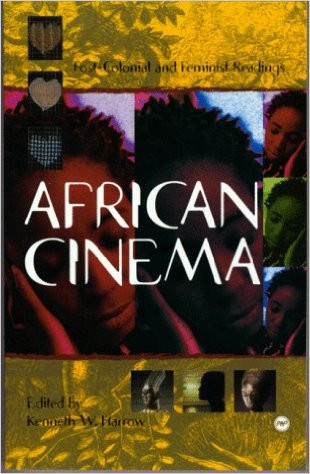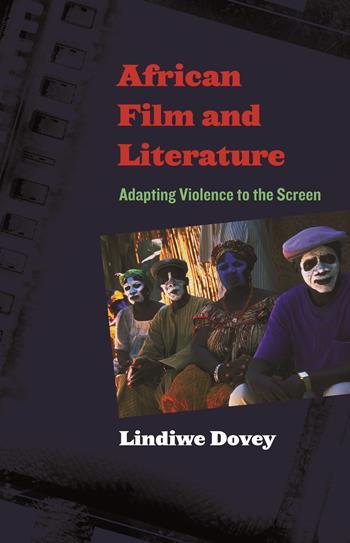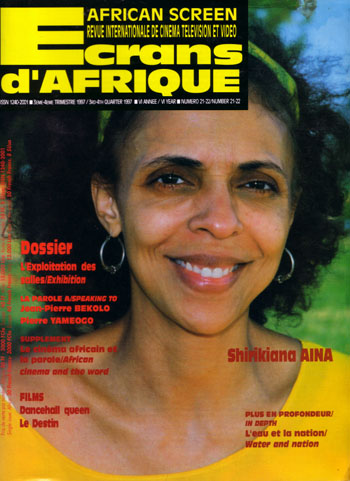African Studies Portal - UW-Madison Libraries : Film
- Getting Started Toggle Dropdown
- In the News
- General Research Resources Toggle Dropdown
- Research Guides by Subject
- Works by UW-Madison Faculty
- Campus Resources
- Jobs and Funding
- Award Winning Literature and Film
- Community Exchanges
This guide was created by Kimberly Rooney and Emilie Songolo and is managed by Kimberly Rooney. For questions contact kcrooney@wisc.edu.
Noteworthy Films
-
Touki Bouki by Djibril Diop Mambéty
Call Number: AF2.072.007Publication Date: 1973LSS Media Collection
Former cowherd Mory drives a motorbike with a cow's skull on the handlebars, and he and his girlfriend Anta are riding away--from their families, their home, and their future--at least as far as Dakar. They dream of a mythic and romanticized France, and set about scavenging and hustling the funds for the steam liner to Paris. Mory finds that the West, while seductive, cannot compete with the challenges posed by Dakar and his own country. Mambety's juxtaposition of premodern, pastoral, and modern sights and sounds vividly captures the hybridity of postcolonial African society, while his story grapples with the difficulties that society faces in constructing a usable African culture. -
 The First Grader
by
Justin Chadwick
Call Number: AF2.072.090Publication Date: 2011LSS Media Collections
The First Grader
by
Justin Chadwick
Call Number: AF2.072.090Publication Date: 2011LSS Media Collections
In Kenya in 1953 there was a violent uprising against British colonial rule led by the Mau Mau, who were mainly from the Kikuyu tribe. Thousands were killed, and thousands imprisoned, although the conflict did eventually lead to independence for Kenya. Based on a true story, this tells the tale of how 84-year-old Kenyan villager and ex-Mau Mau freedom fighter Kimani N'gan'ga Maruge fights for his right to go to school for the first time to get the education he could never afford. It is a triumphant testimony to the transforming force of education. -
Moolaadé by Ousmane Sembene
Publication Date: 2004It is the time for the young girls of a village to be "purified" by ritual circumcision. The women know that many girls die after the operation, but the men of the village insist on the ceremony. Since the village men will not marry an un-cut woman, the older women insist on the ritual, too, as their daughters must find husbands. Collé has kept her daughter from being circumcised, and several of the girls go to her for refuge. Collé agrees to help them, and she invokes "moolaade," a form of sanctuary. -
Bamako by Abderrahmane Sissako
Call Number: AF2.072.083Publication Date: 2007Melé, a bar singer, and her unemployed husband Chaka are on the verge of breaking up. In the courtyard of the house they share with other families in Bamako, the capital city of Mali, African civil society representatives have taken proceedings against such international financial institutions as the World Bank and the International Monetary Fund, whom they blame for Africa's woes. As numerous trial witnesses air bracing indictments against the multinational economic machinery that haunts them, life in the courtyard presses forward. -
 Yeelen = Brightness
by
Souleymane Cissé
Call Number: AF2.072.005Publication Date: 1987LSS Media Collection
Yeelen = Brightness
by
Souleymane Cissé
Call Number: AF2.072.005Publication Date: 1987LSS Media Collection
A film adaptation of one of the great oral epics of the Bambara people, set during the powerful Mali Empire of the 13th century. Tells the story of Nianankoro, a young Bambara warrior destined to destroy a corrupt older society, the secret Komo cult, and with it his father, and, inevitably, himself. The climactic flash of light which floods the screen at the film's end ushers in a new purified world order and captures the Bambara belief in time as circular, not linear, always returning to that initial "brightness" which created the world. -
 Sankofa
by
Haile Gerima
Call Number: AF2.072.057Publication Date: 2003LSS Media Collections
Sankofa
by
Haile Gerima
Call Number: AF2.072.057Publication Date: 2003LSS Media Collections
Sankofa, an Akan word meaning òne must return to the past in order to move forward,' is the story about the transformation of Mona, a self-possessed African-American woman sent on a spiritual journey in time to experience the pain of slavery and the discovery of her African identity. -
La noire de... by Ousmane Sembene
Publication Date: 1965In La noire de ..., Senegalese maid goes to the Riviera with her employers and gains a new perspective on what it means to be African outside of Africa. A story of exile and despair. -
Ṣamt al-quṣur = The silences of the palace = Les silences du palais by Moufida Tlatli
Call Number: FR2.059.163Publication Date: 1996LSS Media Collection
Set in Tunisia in the 1950's. Alia, the young servant-girl played by Hend Sabri, is misused by her masters and wooed by the rebel. -
The Gods must be crazy by Jamie Uys
Publication Date: 1980An empty Coke bottle drops from the sky near Xixo, an African San hunter, but after it causes trouble to the group, he tries to return the bottle to the gods who must have dropped it.
Noteworthy Documentaries
-
Miners shot down by Rehad Desai
Call Number: HD5442.M6 M56 2014Publication Date: 2014Verona Shelving Facility
South Africa’s most talked-about documentary, the controversial Miners Shot Down explores the events leading up to and the aftermath of the Marikana miners’ strike and police shooting that ended in the death of 34 miners. A multi-award winner – including the 2015 International Emmy for Best Documentary – the film is a cutting dissection of post-apartheid South Africa’s socio-political landscape. -
Sisters in law by Florence Ayisi and Kim Longinotto
Call Number: K118 W6 S57 2005Publication Date: 2005Verona Shelving Facility
A documentary record of a courtroom in Kumba, Cameroon, where a female prosecutor and judge work to put an end to their community's tacit acceptance of child abuse, wife beating and rape. -
 For the best and for the onion!
by
Sani Elhadj Magori
Call Number: Online AccessPublication Date: 2008Agriculture is key to the local economy in Niger, with Galmi onions prized throughout West Africa. Farmer Yaro's daughter Salamatou is betrothed to Adamou. The couple hope to marry soon, but after each harvest--much to his future son-in-law's frustration--Yaro postpones the wedding yet again. He says he wants his daughter to be married with dignity, and that means having enough money to pay for all the expenses tradition demands. As the growing season progresses, Yaro is under increasing pressure to finally set a date for the wedding. Meanwhile, the market price of onions begins a rapid downward slide and the engaged couple come up with a solution to speed their marriage.
For the best and for the onion!
by
Sani Elhadj Magori
Call Number: Online AccessPublication Date: 2008Agriculture is key to the local economy in Niger, with Galmi onions prized throughout West Africa. Farmer Yaro's daughter Salamatou is betrothed to Adamou. The couple hope to marry soon, but after each harvest--much to his future son-in-law's frustration--Yaro postpones the wedding yet again. He says he wants his daughter to be married with dignity, and that means having enough money to pay for all the expenses tradition demands. As the growing season progresses, Yaro is under increasing pressure to finally set a date for the wedding. Meanwhile, the market price of onions begins a rapid downward slide and the engaged couple come up with a solution to speed their marriage. -
الميدان = The square by Jehane Noujaim
Call Number: AR2.062Publication Date: 2013LSS Media Collection
Depicts the ongoing Egyptian Revolution of 2011 from its roots in Tahrir Square. Shows how activists are reacting to the demands of the new regime. -
Elephant's dream by Kristof Bilsen
Call Number: DT665.L4 E44 2015Publication Date: 2014Verona Shelving Facility
A female post office clerk in a dilapidated central post office, colleagues at a deserted train station and a group of firemen in the only fire station of the city. The stories of three state-owned institutions and their employees in the Democractic Republic of the Congo offer an authentic insight into their daily lives and survival in Kinshasa. A surprisingly poetic and empathetic look at a changing state in decline, as well as a mirror for the Western world. -
Sembène! by Samba Gadijgo and Jason Silverman
Call Number: AF2.072.096Publication Date: 2015LSS Media Collection
Ousmane Sembène was a Senegalese dockworker and fifth-grade dropout who became the self-taught father of African cinema who fought enormous odds to return African stories to Africa. -
Mali blues by Lutz Gregor
Call Number: Online AccessPublication Date: 2016Docuseek2
Four dynamic Malian musicians use their music to stand up to religious extremism.
Print Works
-
 African Cinema
by
Kenneth W. Harrow (Editor)
Call Number: PN1993.5 A35 A357 1999ISBN: 9780865436961Publication Date: 1998-09-01College Library Main Collection (1st Floor West, Room 1191), Memorial Library Stacks Regular Size Shelving
African Cinema
by
Kenneth W. Harrow (Editor)
Call Number: PN1993.5 A35 A357 1999ISBN: 9780865436961Publication Date: 1998-09-01College Library Main Collection (1st Floor West, Room 1191), Memorial Library Stacks Regular Size Shelving -
 Postnationalist African cinemas
by
Tcheuyap, Alexie.
Call Number: PN1993.5 A35 T35 2011ISBN: 9780719083365Publication Date: 2011Memorial Library
Postnationalist African cinemas
by
Tcheuyap, Alexie.
Call Number: PN1993.5 A35 T35 2011ISBN: 9780719083365Publication Date: 2011Memorial Library -
 Sonic Space in Djibril Diop Mambety's Films
by
Vlad Dima
Call Number: PN1998.3.D56 D56 2017ISBN: 9780253024213Publication Date: 2017-01-09Memorial Library
Sonic Space in Djibril Diop Mambety's Films
by
Vlad Dima
Call Number: PN1998.3.D56 D56 2017ISBN: 9780253024213Publication Date: 2017-01-09Memorial Library -
 African film and literature : adapting violence to the screen
by
Lindiwe Dovey
Call Number: PN1993.5 A35 D68 2009ISBN: 9780231147545Publication Date: 2009Memorial Library
African film and literature : adapting violence to the screen
by
Lindiwe Dovey
Call Number: PN1993.5 A35 D68 2009ISBN: 9780231147545Publication Date: 2009Memorial Library -
 Films on Africa
by
Paul Lazar
Call Number: DT19.8 Z9 F54 1982ISBN: 9780941934381Publication Date: 1982-01-01Memorial Library Stacks Regular Size Shelving
Films on Africa
by
Paul Lazar
Call Number: DT19.8 Z9 F54 1982ISBN: 9780941934381Publication Date: 1982-01-01Memorial Library Stacks Regular Size Shelving
Journals
-
 Ecrans d'Afrique
Call Number: AP E21842 D213Publication Date: 1992-1996Memorial Library
Ecrans d'Afrique
Call Number: AP E21842 D213Publication Date: 1992-1996Memorial Library
Journals
Limited search available on HathiTrust
Reference Works
-
Dictionary of African Filmmakers by Roy Armes
Call Number: PN1998.2 A758 2008ISBN: 9780253351166Publication Date: 2008-06-20Memorial Library Reference Stacks (2 South) -
 Sub-Saharan African films and filmmakers, 1987-1992 : an annotated bibliograghy
by
Nancy J. Schmidt
Call Number: PN1993.5 A357 S32 1994Publication Date: 1994Memorial Library Reference Stacks (2 South)
Sub-Saharan African films and filmmakers, 1987-1992 : an annotated bibliograghy
by
Nancy J. Schmidt
Call Number: PN1993.5 A357 S32 1994Publication Date: 1994Memorial Library Reference Stacks (2 South)
Databases
-
Black Studies in VideoBlack Studies in Video, the latest addition to Alexander Street Press’s award-winning black studies portfolio, brings together seminal documentaries, powerful interviews, and previously unavailable archival footage surveying the black experience. At completion, the collection will contain 500 hours of film covering African American history, politics, art and culture, family structure, gender relationships, and social and economic issues. In partnership with California Newsreel, the database provides unique access to their African American Classics collection, and includes films covering history, politics, art and culture, family structure, social and economic pressures, and gender relations. Additionally, and exclusively from Alexander Street, Black Studies in Video will feature the SNCC Legacy Video Collection, a series of over fifty hours of formal addresses, panel discussions, and programs that took place at the fiftieth anniversary conference and reunion commemorating the founding of the Student Nonviolent Coordinating Committee. The collection includes documentaries on leading artists, writers, musicians, playwrights, and performers, such as Toni Morrison, Langston Hughes, Huey P. Newton, Frantz Fanon, Zora Neale Hurston, Richard Wright, Eldridge Cleaver, August Wilson, Bobby Seale, Ethel Waters, Amiri Baraka, and Robert F. Williams. The database will also draw from the Hatch-Billops Collection, a critically acclaimed archive of primary and secondary resource materials focused on black American art, drama, and literature. Additional content planned for inclusion are the SNCC archives, the NAACP archives, and archives from select Historically Black Colleges and Universities. (Updates unknown)
-
Filmakers Library OnlineInterdisciplinary resource of over 1,000 issue-based documentaries and independent films from the U.S. and other countries. Topics include: race and gender studies, human rights, globalization and global studies, multiculturalism, international relations, criminal justice, the environment, bioethics, health, political science, and current events, psychology, arts, literature, and more. Clips, playlists, etc., can be integrated into web pages and learning management systems either as links or embeds. (Complete: not updated)
-
KanopyKanopy is a video streaming platform which offers a broad collection that includes over 26,000 films and videos from 800 top producers such as BBC Active, California Newsreel, Criterion Collection/Janus films, Documentary Educational Resources, First Run Features, The Great Courses, Green Planet Films, Kino Lorber Edu, Media Education Foundation, National Film Board of Canada, New Day Films, PBS, Psychotheraphy.net, the DEFA Film Library’s (East) German Film Collection, and many more. Kanopy launches over 300 new releases per month. Films range from documentaries, independent and foreign films, must-see classics, and blockbuster movies. With regard to topic coverage, humanities and the arts represent the largest category, followed by education and media/communication. Other strong categories are the sciences, social sciences, and history. Search for films by title, subject, keywords, or browse by subject. Register with Kanopy to utilize features such as playlists, clips, sharing, embedding, and creating a watch list for future viewing. Can’t find what you are looking for? Contact Kanopy and they will try to obtain the film for the database within several weeks. Also see Docuseek2 database for more streaming video options.
-
Film & Television Literature Index (FTLI)FTLI indexes 380 film and television periodicals from 30 countries cover-to-cover and another 300 periodicals selectively. Abstracts are included since 2004, and more will be added in the future. Articles, film reviews, and book reviews from are included from both scholarly and popular film and TV sources. (Updated twice-monthly)
-
Film Index InternationalFilm Index International includes information on more than 128,000 films and 900,000 individuals from 170+ countries. It is searchable by person, film title, and keyword, plus many other fields. Records include director name, full cast and crew lists, credits, awards received, and synopses. In addition, it provides citation information for selected (mainly scholarly) reviews and other journal articles related to the film or person. For articles on film topics, see FIAF: The International Federation of Film Archives. (Updated semiannually)
-
International Encyclopedia of Media StudiesThis encyclopedia covers the broad field of "media studies” which includes encompassing print journalism, radio, film, TV, photography, computing, mobile phones, and digital media. Coverage includes themes of media history and foundations, production, content and representation, audience and interpretation, media effects and psychology. Inclusivity is stressed in terms of global topics; global authors; paradigm diversity; qualitative and quantitative methods; and gender, race, and sexuality.
-
JSTOR: The Scholarly Journal ArchiveJSTOR is a full-text journal database which provides access to more than 1,200 titles in the fields of African-American studies, anthropology, architecture, Asian studies, biological sciences, botany, ecology, economics, education, film, finance, folklore, history, language, literature, mathematics, middle east studies, music, philosophy, political science, population/demography, religion, sociology, and statistics. Coverage begins with volume one of each title and continues to within 3 to 5 years of the most current issue, depending on the title. The "moving wall" represents the time period between the last issue available in JSTOR and the most recently published issue of a journal; it is specified by publishers in their license agreements with JSTOR. Graphs, photographs, and other images are included. UW-Madison Libraries have acquired the following JSTOR collections: Arts & Sciences I-XIV; Biological Sciences; Business; Ecology & Botany I-II; Health & General Sciences; Ireland; Language & Literature; Music. (Updated irregularly)
Open Access Resources
-
Awotele
 La revue des critiques ciné
La revue des critiques ciné
(Cinema journal)
Créée en 2015, AWOTELE est publiée par Sudu Connexion à l'occasion des trois grands festivals du continent : Carthage (Tunisie), Ouagadougou (Burkina Faso) et Durban (Afrique du Sud).
Launched in 2015, AWOTELE is published by Sudu Connexion on the occasion of the three major cinematographic events on the continent: Carthage (Tunisia), Ouagadougou (Burkina Faso) and Durban (South Africa).
-
California News Reel
 The Library of African Cinema
The Library of African Cinema
Films from Africa made by Africans offer restorative images and oftentimes a new film language. The unique films in this collection not only showcase the works of master filmmakers but also innovative new talents who are embracing video technology. To see Africa through African eyes will break stereotypes and enlighten viewers about life in Africa as well as about the issues facing the continent.
Articles to help you view and teach African cinema written by African filmmakers and scholars are also available.
-
Festival de cine africano (FCAT)
 Al Tarab nace en el año 2003 en la ciudad de Tarifa, en España, como asociación sin ánimo de lucro con el fin de promover y difundir la cultura africana en España, América Latina y el propio continente africano a través de actividades de cooperación cultural, siendo su herramienta principal el cine.
Al Tarab nace en el año 2003 en la ciudad de Tarifa, en España, como asociación sin ánimo de lucro con el fin de promover y difundir la cultura africana en España, América Latina y el propio continente africano a través de actividades de cooperación cultural, siendo su herramienta principal el cine.
A través del cine queremos deconstruir estereotipos y aportar conocimiento a cerca de las múltiples realidades de África, el mundo árabe y, sus diásporas en América Latina, dando voz a los cineastas africanos porque creemos que es hora de que África sea contada por los africanos.
-
Africiné
 Créée à Tunis le 8 Octobre 2004 en marge des 20èmes Journées Cinématographiques de Carthage, la F.A.C.C est une organisation non gouvernementale qui regroupe des associations africaines de critiques de cinéma ainsi que des membres individuels. Basée à Dakar, au Sénégal, la Fédération compte aujourd’hui plus de 350 journalistes et critiques de cinéma. Son magazine électronique de cinéma « Africine.org » lancé en 2005, est classé aujourd’hui leader mondial (Cinémas africains et diasporas). Sa base de données couvre plus de 16 000 films et offre aux visiteurs plus de 2 800 articles et analyses sur le cinéma en Afrique.
Créée à Tunis le 8 Octobre 2004 en marge des 20èmes Journées Cinématographiques de Carthage, la F.A.C.C est une organisation non gouvernementale qui regroupe des associations africaines de critiques de cinéma ainsi que des membres individuels. Basée à Dakar, au Sénégal, la Fédération compte aujourd’hui plus de 350 journalistes et critiques de cinéma. Son magazine électronique de cinéma « Africine.org » lancé en 2005, est classé aujourd’hui leader mondial (Cinémas africains et diasporas). Sa base de données couvre plus de 16 000 films et offre aux visiteurs plus de 2 800 articles et analyses sur le cinéma en Afrique.
-
L'encyclopédie du film africain
 Amiens, Bamako, Carthage, Johanesbourg, Los Angeles, Londres, Marrakech, Milan, Montréal, Namur, New-York, Ouagadougou, Venise, Yaoundé. Toutes ces villes célèbrent chaque année avec plus ou moins de faste les Cinémas d'Afrique.
Amiens, Bamako, Carthage, Johanesbourg, Los Angeles, Londres, Marrakech, Milan, Montréal, Namur, New-York, Ouagadougou, Venise, Yaoundé. Toutes ces villes célèbrent chaque année avec plus ou moins de faste les Cinémas d'Afrique.
-
Vues d'Afrique: Festival Montréal
 Vues d'Afrique s'affirme comme l'organisme de référence pour l'information et la diffusion de productions culturelles sur l'Afrique, les pays créoles et leurs diasporas, en particulier les productions audiovisuelles sur toutes les plateformes actuelles et émergentes, au sein d'un réseau local et international.
Vues d'Afrique s'affirme comme l'organisme de référence pour l'information et la diffusion de productions culturelles sur l'Afrique, les pays créoles et leurs diasporas, en particulier les productions audiovisuelles sur toutes les plateformes actuelles et émergentes, au sein d'un réseau local et international.
Commemorative Fabrics from Africa








